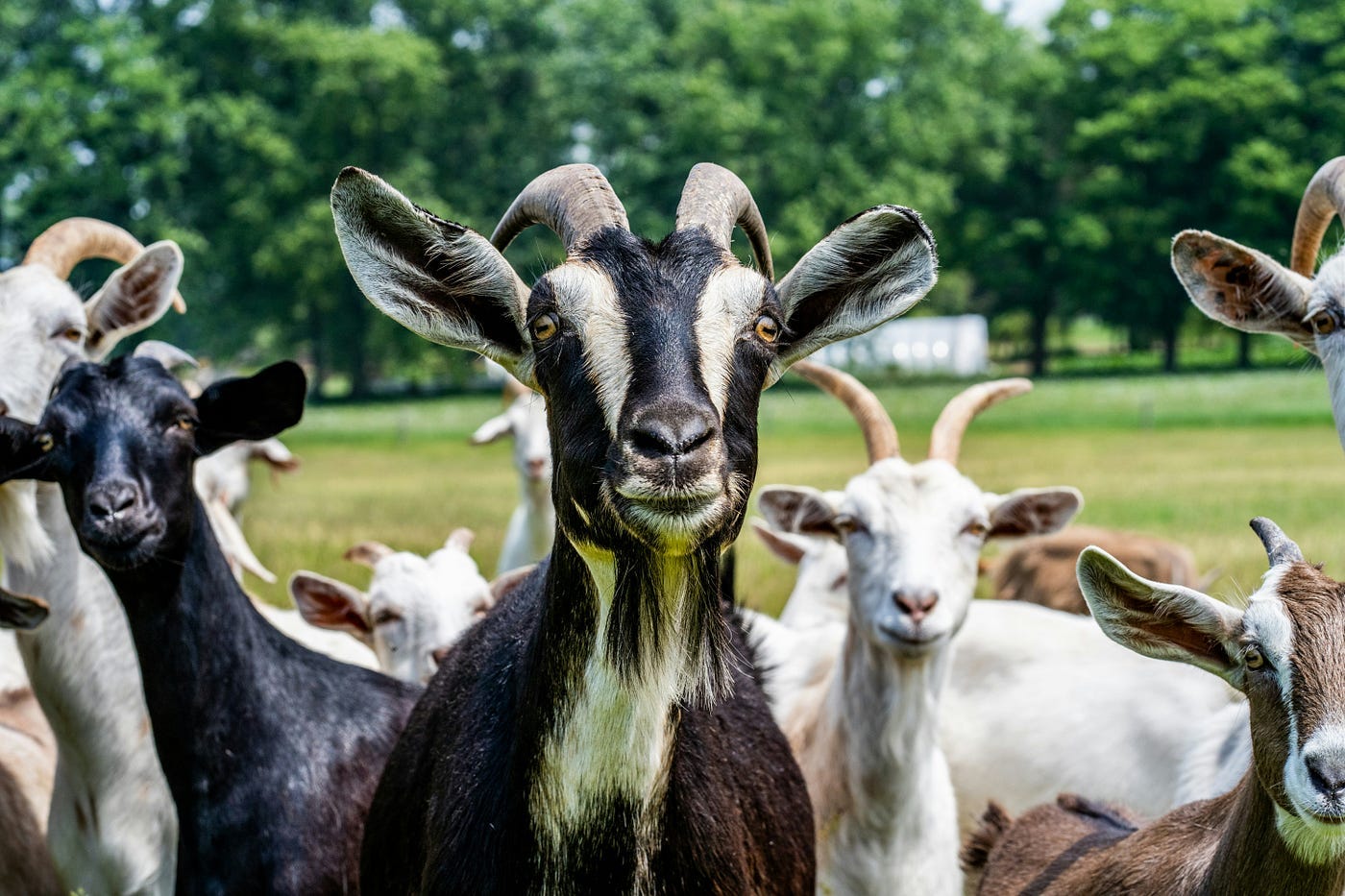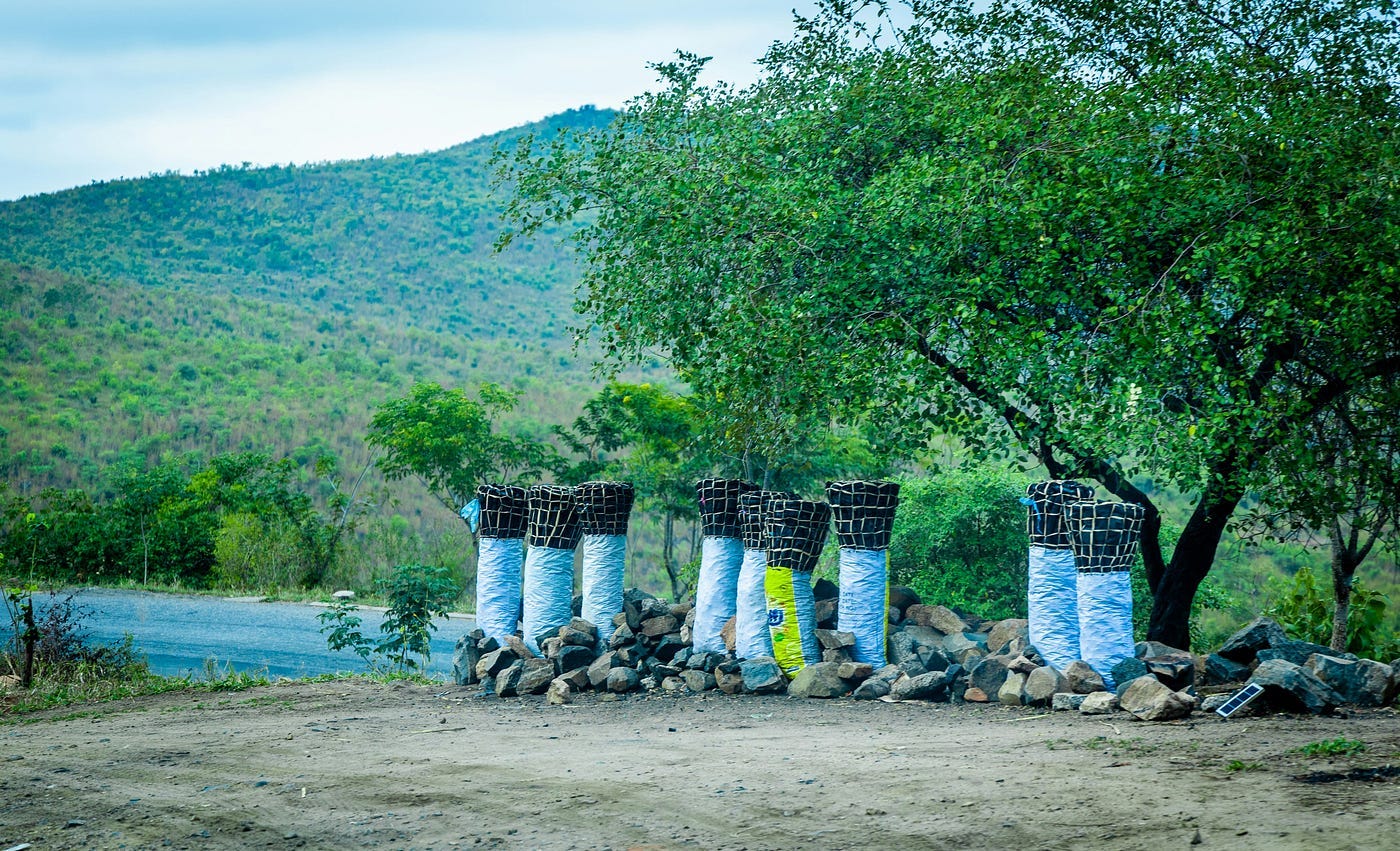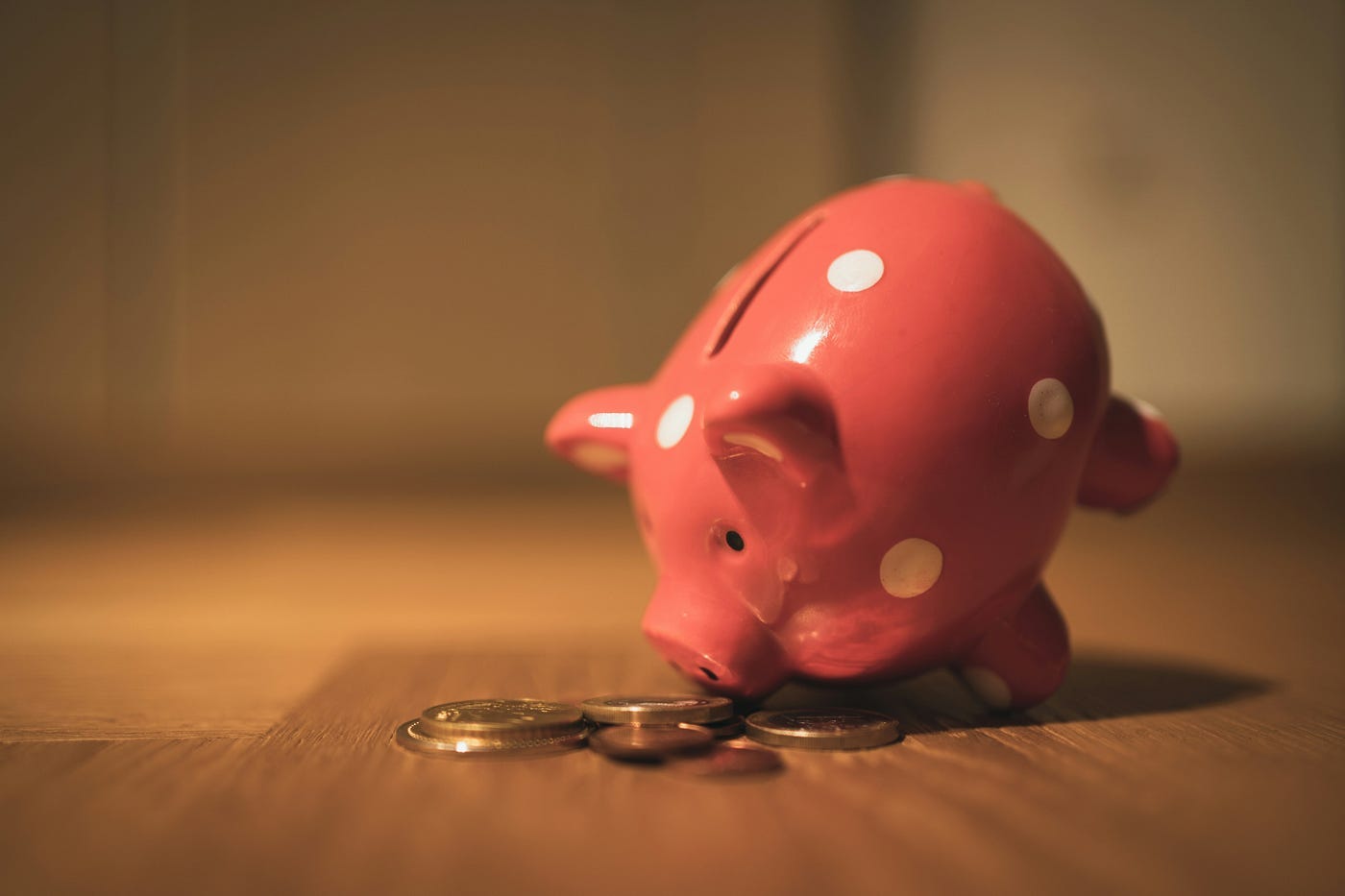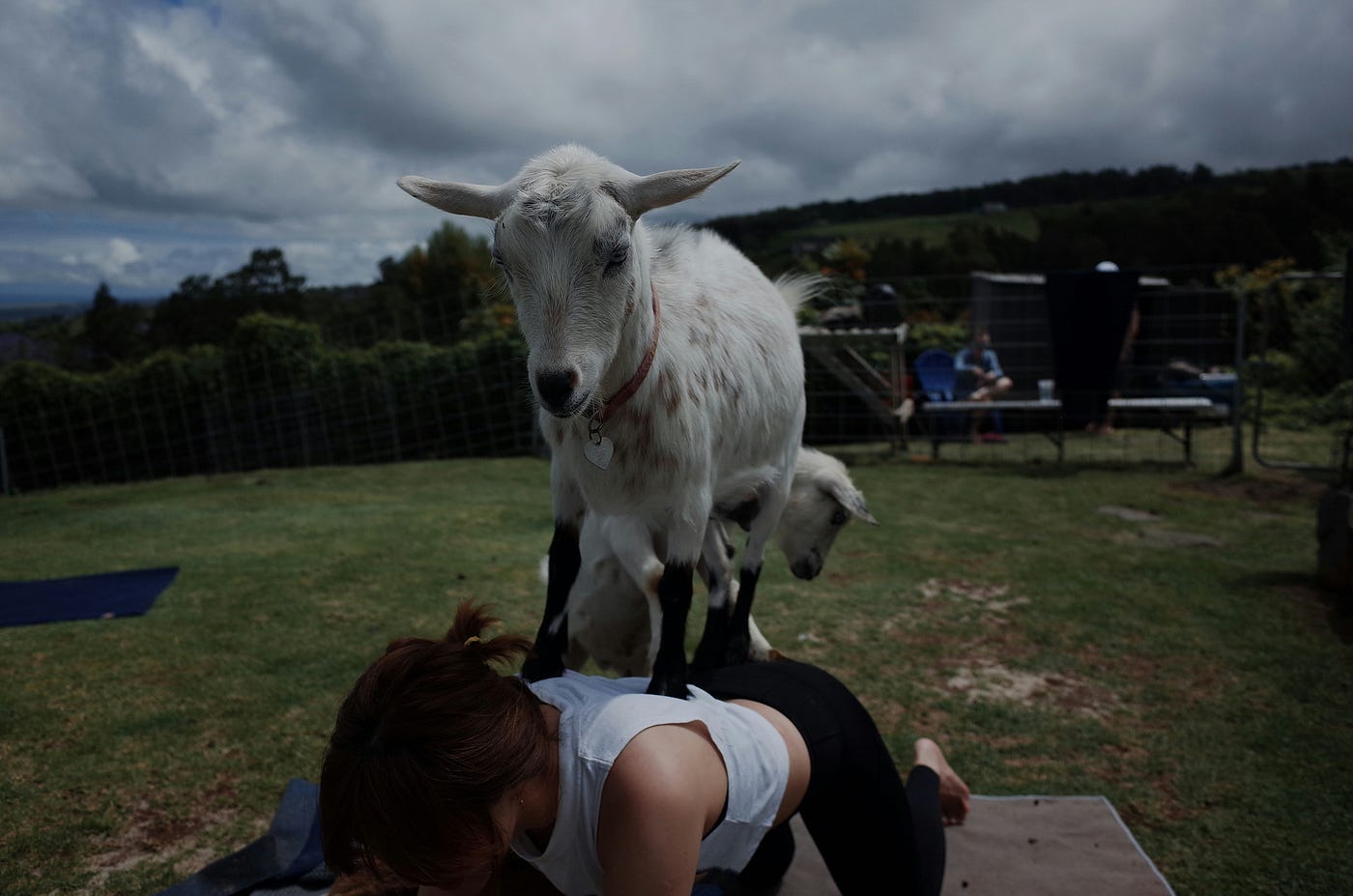Hyper-inflating the goat
…or how Malawi’s store of value is rapidly destroying the country and what can be done about it.
Goats are everywhere in Malawi.

At a population of approximately 12 million and growing, they are set to overtake the human adult population if they haven’t already. As a visitor leaving the international airport, you will find them grazing at their leisure as far as the eye can see, and you’ll dodge them as they cross the road or lay in the middle of it being torn to shreds by crows.
While goat milk is seldom consumed, the meat a luxury reserved for special occasions and goat cheese basically unknown, the goats of Malawi perform a much more essential function. They offer a store of value accessible even to the poorest Malawian, a portable savings technology that outperforms all others.
In a country where inflation frequently tops 40% while the central bank caps the interest rate on savings at 4.3%, the currency devalues suddenly over night (most recently by 44% in November 2023) and stocks, bonds and real estate are not accessible to the majority, goats truly live up to their name as the Greatest Of All Time.
A few years ago, they sold for 15,000 Malawi Kwacha (MWK) but now fetch north of 60,000 MWK. They are the nearest thing we have to challenging Michael Saylor’s bitcoin thesis that there is no second best.
Because if Malawi’s central bank devalues the Kwacha significantly again (and it is surely only a matter of time), the goat will almost certainly break 100,000 MWK, thereby tracking the bitcoin price almost exactly.
But this store of value is rapidly destroying all value.
During the maize growing season between late December and late March, you would observe the goats being shepherded in an orderly fashion and corralled. Maize is the staple food of Malawians and is mostly grown during this single season, the rainy season. If the crop fails, it means widespread hunger.
And everyone knows that goats eat everything.
But this disciplined shepherding ends once the maize has been harvested and the goats are set loose to wantonly graze on whatever takes their fancy. All the new tree saplings and other plants that started to take root during the rains are now picked off one by one. This means there is no reforestation in a country where deforestation is a well-known crisis.
Well-intentioned tree planting efforts are defenceless against the goat onslaught, and you can’t stop people from cutting trees when the only fuel available to cook with for the 85% living without electricity or gas is charcoal. Just watch the bicycles piled high with the stuff brazenly passing police road blocks.

The result is that hardly any trees remain. Occasionally you will see a small gathering of beautiful, mature indigenous trees almost certainly marking a cemetery, the dead seemingly clinging on to some hope of a future. You will also see the occasional mature mango tree, protected for the fruits it bears once a year, and in the hotter areas majestic and untouchable baobab trees.
Everywhere else there is nothing.
The Greek island of Samothraki has recently undergone a similar catastrophe. Ravaged by these stomachs on legs, this once lush island has been turned into a desert, unable to cope with storms and heavy rains. In 2017, the streets became rivers and mudslides washed away homes, taking the medical centre away with them and splitting the town hall in half.
In Malawi, we are seeing similar devastating results, with the annual rains and cyclones causing more and more damage every year. Flash floods are now commonplace, destroying crops, sweeping away houses and dissolving roads. Many people lose everything. Some people die. There is nothing to hold the soil together, nothing to prevent the run off of top soil or the recently planted seed.
The quality and productivity of agricultural land is rapidly depleting and this in a country where 85% of people depend on subsistence agriculture for survival. The risk of a poor harvest and hunger grows by the year, driving demand for imported fertiliser and pushing the price of a 50KG bag from MWK 22,000 in 2020 to MWK 115,000 now, unaffordable for most.
The store of value destroys all value and it is only getting worse.
Of course, the need to store value outside of the money system is not peculiar to Malawi, but the consequences vary. Across the world, fiat money has not performed the function of a store of value for decades. The US Dollar has lost ~98% of its purchasing since 1971 when any link to gold was finally abandoned.

So other assets have replaced money’s store of value function, principally houses, bringing us Generation Rent or a whole life term mortgage. If you are able to and have the conviction to save in other ways, you can buy stocks and bonds, precious metals or, increasingly, bitcoin.
But many of these options aren’t available to Malawians. Individuals can’t even legally purchase US Dollars unless they have a plane ticket out of the country, this being far out of the reach of the majority. Even then, the banks often don’t have any currency on hand and, if they do, the law requires any unspent currency to be sold back at the official rate upon return. So when everyone’s money is losing 40+% per year, they escape in any way they can.
The fact that the price of goats somehow keeps on increasing has not gone unnoticed by the Donorati who specialise in devising programmes from air conditioned city suites to ‘increase incomes’ for people living in rural areas. The Greatest Of All Time tick a big box for them because the Donorati view the nominal gain when a farmer sells a goat as ‘increased income’, even though, in reality, the goat holder has been engaged in capital preservation, a desperate attempt to escape the rapidly depreciating currency.
Only goats offer the hope that you’ll be able to afford next year’s school fees, buy food if your crop fails, or raise funds for funerals or medical emergencies.
And so, with agriculture becoming ever riskier and with few other ways to ‘increase incomes’ in rural areas, the Greatest (Value Destroyers) Of All Time emerge as the preferred solution.
Believe it or not, it was the same Donorati class who perpetrated the destruction of Samothraki when, in the name of creating income generating opportunities for its residents, the EU encouraged ownership of goats by heavily subsidising them.
Today in Malawi, World Vision is just one of the NGOs perpetuating environmental destruction in the name of income generation, in their case distributing 13,000 goats to 2,000 families with the aim that those families will furnish yet more families with their goats’ offspring to help the programme (but little else) grow and sustain itself.
We can only hope that this all leads to hyper-inflating the goat, increasing their supply so rapidly that their price in money terms crashes and they lose their status as the ultimate store of value.
In just the last twelve months, however, Malawi’s money supply has itself been increased by 51%, so we will need an epic increase in the goat population to have any hope of crashing the price.
And of course by that point it will be too late because everything will have been destroyed and Malawi will have been repurposed to rival Samothraki as the world’s premier goat yoga retreat.
Photo by Vivian Cai on Unsplash
A better way would be to give Malawians access to an alternative store of value that does not destroy all value. Instead of each household holding on to twelve goats, they could simply hold on to twelve (or better twenty four) words to their bitcoin wallet. As with so many of the world’s problems, the solution offered by bitcoin once again emerges as the Greatest Of All Time.



